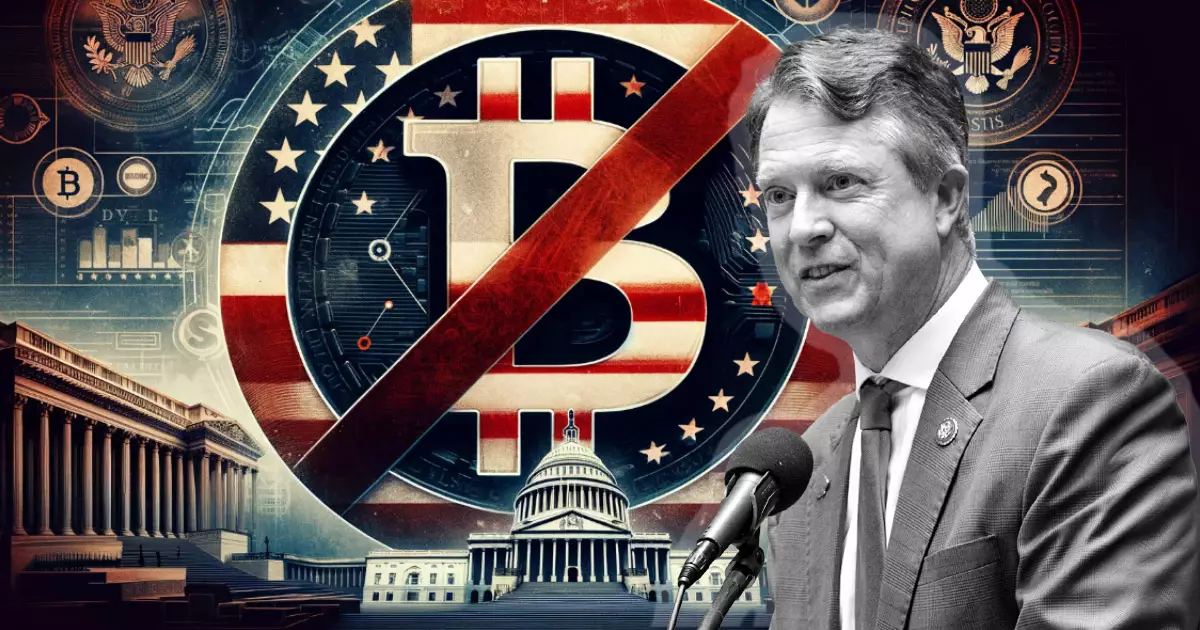The Digital Asset Anti-Money Laundering Act, introduced by U.S. Senator Elizabeth Warren and supported by U.S. Senator Roger Marshall, has recently come under intense scrutiny from the cryptocurrency community. Senator Marshall disclosed that the American Bankers Association played a significant role in formulating the legislation, seeking to align the regulatory standards for cryptocurrencies with those of traditional financial institutions. This disclosure has drawn criticism and sparked a heated debate within the crypto industry.
An Unwelcome Partnership
The admission by Senator Marshall regarding the involvement of the American Bankers Association in crafting the Digital Asset Anti-Money Laundering Act has received significant backlash from cryptocurrency stakeholders. Coinbase CEO Brian Armstrong expressed disappointment with lawmakers advocating for banks, highlighting the dissatisfaction felt by many Americans with the existing financial system. This partnership between politicians and traditional banking institutions raises concerns about the true intentions of the legislation.
Sam Lyman, the director of public policy at Bitcoin miner Riot Platforms, exposed his skepticism towards the legislation by stating, “They’re not even trying to hide it anymore: the big banks wrote the bill to kill crypto in the US. But please, keep telling me this is just about AML.” This sentiment reflects the growing sentiment within the crypto community that the legislation is aimed at stifling innovation and creating regulatory barriers for the emerging industry.
The Argument for Enhanced Regulation
Proponents of the Digital Asset Anti-Money Laundering Act, including several US lawmakers and Wall Street banks, argue that the bill aims to address existing loopholes and establish regulatory oversight for the cryptocurrency industry. They assert that aligning the digital asset ecosystem with established anti-money laundering and countering the financing of terrorism frameworks is crucial for maintaining the integrity of the financial system. However, critics argue that the legislation unfairly targets the crypto industry, under the guise of combating illicit activities.
Senator Warren’s recent remarks condemning crypto companies’ employment of former defense and law enforcement officials to lobby against new regulatory measures have further fueled the controversy surrounding the Digital Asset Anti-Money Laundering Act. Critics argue that her statement implies a disregard for the First Amendment rights of individuals and organizations within the crypto industry. This sentiment is echoed by Pierre Rochard, the Research VP of Riot Platforms, who believes that passing laws without open debate is a threat to democracy.
Reactions from Industry Leaders
Prominent figures within the cryptocurrency industry have expressed their disappointment and frustration with Senator Warren’s actions. Mike Novogratz, the CEO of Galaxy Digital, criticized her for using any opportunity to make headlines, describing her as a disingenuous know-it-all. Furthermore, Ripple CTO David Schwartz expressed anger at the Senator’s new move, suggesting that it demonstrated a lack of understanding about the potential benefits of cryptocurrencies.
The Digital Asset Anti-Money Laundering Act and its association with the American Bankers Association have ignited a fierce debate within the cryptocurrency community. While proponents argue that the legislation aims to enhance regulatory oversight for the industry, critics view it as an attempt to stifle innovation and favor traditional banking institutions. The partnership between politicians and financial institutions raises questions about the true motivations behind the legislation. As the crypto community continues to voice its concerns, it remains to be seen how this legislation will shape the future of the cryptocurrency industry in the United States.

